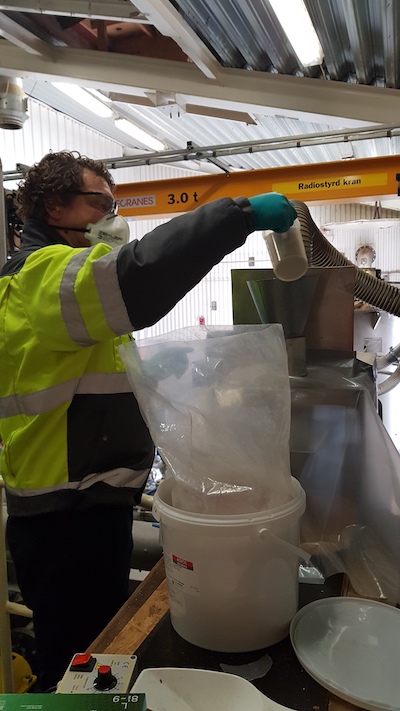From molecular interactions to macroscopic properties
The objective of this research project is to develop a deeper understanding on how chemicals can influence the dry strength of biocomposites, in our case board and tissue. The following parameters will be considered: -Influence of chemistry (mainly polyelectrolytes, PE) on bond and network strength -Influence of PE configuration and loading (charge) on bond and […]
Sustainable materials chemistry SU/Sipponen
My group at Stockholm University will be developing new materials from renewable resources such as lignin and other components of plant biomass. A central focus area will be the utilisation of green chemistry principles en route to functional materials for energy and environmental applications. We will be seeking close collaboration with the industry and the […]
Terpene based materials
The project focuses on the polymerization of biopolymers using molecular building blocks from renewable sources, mainly using on monomers containing cycling subunits.
NMR as tool to study heterogeneity in biomass
In this project, the purpose is to implement solid-state NMR methods to obtain domain sizes in biopolymer composites and to determine molecular orientation distribution in anisotropic material. The ambition is to take advantage of recent methodological NMR development regarding spin diffusion and intrinsic chemical shielding tensor properties. The project is a part of WWSC
Process-adapted biobased assortments through novel development of the steam explosion process

The aim of the project is to, from softwood bark, develop and provide semi-manufactured industrial commodities with the following properties: a) Low content of process-disturbing/inhibitory substances during steam pretreatment b) Enhanced enzymatic digestibility c) High density and manageable properties for storage and transport Project partners: Swedish University of Agricultural Sciences, Valmet, Bio4Energy
The role of water availability in fungal degradation of lignocellulosic materials
We need to increase the use of lignocellulosic materials in all sectors in society, e.g., both as construction materials and as feedstock for the chemical industry. The possiblilty of such an increase is dependent on whether we can make construction materials more durable by eco-friendly methods, and the lignocellulosic feedstock easier to degrade in the […]
Functionalized cellulose structures from aqueous alkaline systems
Even though aqueous alkaline systems are among the most prominent and sustainable conversion media for cellulose (of particular importance for large scale processes) fundamental understanding of principal molecular interactions in these systems is still limited, especially of those stabilizing cellulose solutions in aqueous alkali. However, regardless of the nature of stabilizing interactions in these solutions, […]
Processintensifiering av sulfatmassaproduktion med ligninutvinning genom trycksatt framvänd osmos
Biofuels in the form of lignin bio-oil can be produced from sulfate pulp mill lignin. However, the current process developed by SunCarbon extracts lignin from black liquor by membrane filtration resulting in low lignin filtrate. This project thus aims to intensify the sulfate pulp production process with lignin recovery by enhancing the lignin recovery combined […]
Durable water-, oil- and soil repellent wood for outdoor applications via smart surface modification
Syftet med detta projekt är att förbättra hållbarheten utomhus av trä och biokompositmaterial för fasadmaterial samt utemöbler med hjälp av robust ytmodifiering som avvisar vatten, oljor och smuts. Vår nya idé bygger på användning av hållbara komponenter och skalbara processer. Vetenskapliga och tekniska mål är att formulera en halvtransparent beläggning för trä för att skydda […]
Enzyme discovery and structure-function investigation of carbohydrate-active enzymes – new tools for biomass tailoring
The plant cell wall is a highly complex structure, and the main constituent of wood as a material. Microorganisms can break down essentially all parts of the cell wall with time, and their enzymatic strategies can today be utilized thanks to the advances in molecular biology and biochemistry. The enzymes can be used as highly […]
Biokemisk omvandling av bark – en outnyttjad men rikligt förekommande resurs
Detta projekt syftar till att lägga en grund för ett effektivt nyttjande av bark via bioteknologiska metoder. Bark är en förnybar resurs som idag går till spillo i enorma mängder, då den räknas som en restprodukt utan värde. Barken innehåller en mängd komponenter som skulle kunna användas i energitillämpningar, och via biokemisk separation och nedbrytning […]
EcoSys – Eco-effective processes and systems
The main purpose of EcoSys is to develop and implement energy-saving technologies at production units producing mechanical pulp with high wood yield (> 90%) and thus also demonstrate and further improve the environmental and sustainability aspects of mechanical pulp manufacturing. Mechanical pulp is durable and resource efficient since it is manufactured with a very high […]

